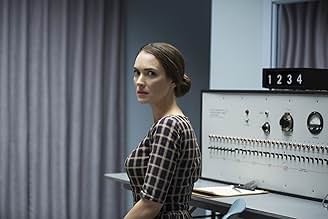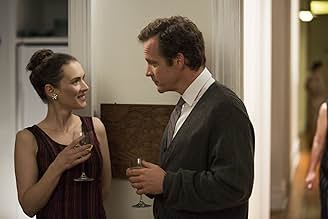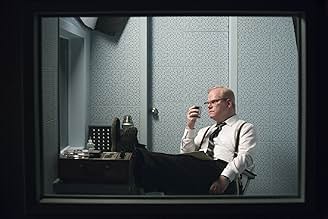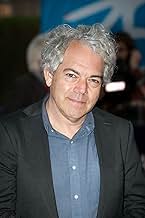In 1961, famed social psychologist Stanley Milgram conducted a series of radical behavior experiments that tested ordinary humans' willingness to obey authority.In 1961, famed social psychologist Stanley Milgram conducted a series of radical behavior experiments that tested ordinary humans' willingness to obey authority.In 1961, famed social psychologist Stanley Milgram conducted a series of radical behavior experiments that tested ordinary humans' willingness to obey authority.
- Awards
- 3 wins & 6 nominations
Ned Eisenberg
- Solomon Asch
- (as Ned Eisenburg)
- Director
- Writer
- All cast & crew
- Production, box office & more at IMDbPro
Storyline
Did you know
- TriviaThe real William Shatner did in fact portray Stanley Milgram in The Tenth Level (1976) which was filmed several years after Star Trek (1966) ended.
- GoofsThe Coca-Cola cans are from the late 60s into the 70s. Not from 1961, the time of the movie.
- Quotes
Stanley Milgram: I believe we are puppets with perception, with awareness. Sometimes we can see the strings. And perhaps our awareness is the first step in our liberation.
- Crazy creditsA cast credit: "Elephant in the Room: Minnie"
- ConnectionsFeatures Candid Camera (1960)
- SoundtracksSome Enchanted Evening
Written by Richard Rodgers & Oscar Hammerstein II
Performed by Mantovani Orchestra and Chorus (as Mantovani Orchestra)
Courtesy of Drew's Entertainment
Featured review
This film is NOT about the Milgram experiment ALONE (the one with shocks and the way we behave when prodded by a person in authority) - and that is what makes this film so interesting! The film is about Stanley Milgram the person. It only starts with his 1961 experiment (which occurred nearly around the same time as the Eichmann trials and Hannah Arendt's writings and hence garnered even more interest). It then continues to show the travails that he passed, his life and how the experiment changed people's perceptions towards him (some interesting reactions here - do watch it and be prepared for the surprises)! For such a popular experiment, there is a surprising lot that many of us (e for certain) may not have known - the film fills in that (large) gap.
There is one big difference between this film and the similar 2015 film "Stanford Prison Experiment" (which I also highly recommend) - This film has a far happier ending and hence makes it even more interesting from a cinematic perspective.
Do watch this film - you will not regret it.
There is one big difference between this film and the similar 2015 film "Stanford Prison Experiment" (which I also highly recommend) - This film has a far happier ending and hence makes it even more interesting from a cinematic perspective.
Do watch this film - you will not regret it.
- londonmapper
- Nov 23, 2015
- Permalink
- How long is Experimenter?Powered by Alexa
Details
- Release date
- Country of origin
- Official sites
- Language
- Also known as
- Experimenter: The Stanley Milgram Story
- Filming locations
- New York City, New York, USA(location)
- Production companies
- See more company credits at IMDbPro
Box office
- Budget
- $1,700,000 (estimated)
- Gross US & Canada
- $155,575
- Opening weekend US & Canada
- $8,682
- Oct 18, 2015
- Gross worldwide
- $224,145
- Runtime1 hour 38 minutes
- Color
- Aspect ratio
- 1.78 : 1
Contribute to this page
Suggest an edit or add missing content








































